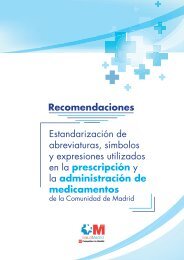lKd7nD
lKd7nD
lKd7nD
You also want an ePaper? Increase the reach of your titles
YUMPU automatically turns print PDFs into web optimized ePapers that Google loves.
Engaging the World<br />
Susan Harris<br />
When people talk about literature<br />
in translation, they often invoke<br />
the classics. Without translation,<br />
they note, most of us would<br />
not be able to read Chekhov,<br />
Flaubert, Homer; we would<br />
have no access to Goethe, to<br />
Dante, no knowledge of Norse<br />
mythology or the Arabian<br />
Nights. While indisputable,<br />
this argument can have the<br />
effect of compartmentalizing (if<br />
not marginalizing) translated<br />
literature as historical rather<br />
than artistic, encountered in a<br />
largely academic environment,<br />
useful primarily for canonical purposes but not particularly<br />
relevant to contemporary life. But literature, with its crucial<br />
insight into world events from a human perspective, provides<br />
an incomparable link to culture from within, and is ever more<br />
valuable in establishing context and filling the lacunae in news<br />
reports. And in our largely monolingual country, where foreignlanguage<br />
fluency is the exception rather than the rule, that link,<br />
and that context, are accessible only through translation. The<br />
inability to read foreign languages, and the corresponding lack<br />
of access to literature written in anything but English, may be the<br />
ultimate “first-world problem,” one that reflects our insularity<br />
and isolation, and perpetuates our restricted knowledge of the<br />
rest of the world.<br />
Everything we read is mediated at some point between<br />
source and delivery, and the greater the distance to the primary<br />
source, the greater the power those mediators have to shape<br />
and distort information. When that information is further<br />
compromised by outside perspectives, often perpetuating<br />
earlier misconceptions and generalizations, and when<br />
both language and geographical barriers preclude direct<br />
investigation, we can end up with simplistic abstractions that<br />
lead to lack of understanding, fear, and worse. To combat this<br />
situation, Words without Borders (WWB) works to promote<br />
cultural understanding through the translation, publication,<br />
The Art of Empathy: Celebrating Literature in Translation<br />
57



